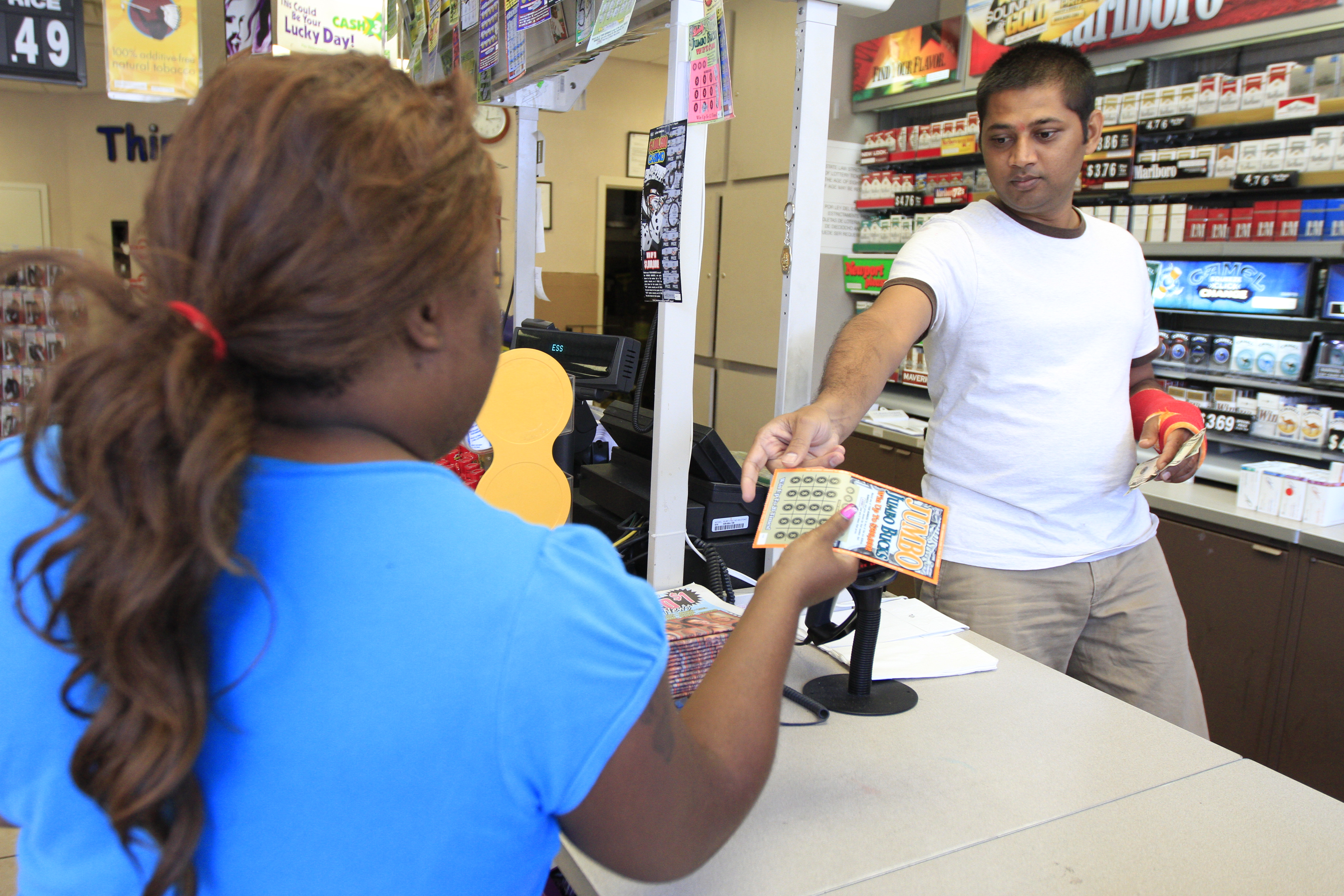 Kelly Jarrett purchases lottery tickets from Mike Patel during her daily lottery run to the Kankus- Smile Fuels gas station off of East Brainerd Road early Monday afternoon. Lottery officials have seen a 10.2 percent jump in funds raised for state education programs from Tennessee Lottery ticket sales in the past fiscal year ending June 30.
Kelly Jarrett purchases lottery tickets from Mike Patel during her daily lottery run to the Kankus- Smile Fuels gas station off of East Brainerd Road early Monday afternoon. Lottery officials have seen a 10.2 percent jump in funds raised for state education programs from Tennessee Lottery ticket sales in the past fiscal year ending June 30.Fast Facts
• More than 600,000 grants or scholarships have been awarded through the lottery since 2004.• More than 100,000 students received scholarships this academic year.Source: Tennessee Education Lottery Corp.
New games, big jackpots and higher prices have all played a part in ramping up Tennessee lottery sales to record levels, and officials say a $30 million increase in education funding will pull the state out of two years of scholarship shortfalls.
Employees at local lottery retailers say doubling the price of Powerball tickets to $2 last January hasn't turned off too many customers.
"Most people are going to buy it no matter what," said Johnny Hargis, assistant manager of Lotto Mart in South Pittsburg, Tenn. "A lot of people are still out of work, trying to get some money."
The Tennessee Education Lottery Corp. raised a record $323.4 million for scholarships this fiscal year, a 10 percent jump over last year's record of $293.4 million. Total statewide sales jumped $124.6 million to $1.18 billion, according to a statement from the lottery.
This is the eighth year the Tennessee lottery has posted record sales, a news release from lottery officials states.
"We are going to work hard to maintain the momentum," said Kym Gerlock, a spokeswoman for the Tennessee Education Lottery Corp. "The first week of the fiscal year is looking really good."
Gerlock said gross sales for fiscal year 2013, which began July 1, through Saturday were $48.3 million, compared with $44.3 million last year, an increase of 9.1 percent.
State Sen. Andy Berke, D-Chattanooga, who is on the Senate Education Committee, said the rising profits should quiet some Republican lawmakers who recently argued for tightened standards for the HOPE scholarship -- which the lottery funds -- because of budget shortfalls.
Some GOP lawmakers were saying that, to be eligible for HOPE, students should have a 21 on their ACT and a 3.0 GPA. The change, which would have affected about 5,000 students, passed in the Senate but failed in the House.
For many years, the lottery made huge profits, but the state didn't spend what it took in, Berke said. Over the years, more students became eligible, but in 2010 the money coming in began to shrink as gas prices went up. Money from the lottery reserve was being used as a stopgap for two years, but this year a surplus is expected, he said.
"Why would we cut scholarships in the face of record revenue?" Berke said.
In the last fiscal year, instant game sales were the bulk of lottery revenue, accounting for 81 percent, lottery officials said. Forty-three new instant games were introduced, driving instant sales up more than 10 percent, they said. Draw-style games such as Cash 3 and Powerball, which were flat in recent years, were more popular, too.
Thirty-three-year-old Kelly Jarrett, who came into an East Brainerd Kanku on Monday to play Cash 3, said she has bought a ticket every day since she won $500 in a scratch-off game in Georgia last year.
She plays her children's birthday dates and last week won $50. The ticket was $1.
"I don't do too bad," she said.
Staff writer Andy Sher contributed to this report.
Contact staff writer Joan Garrett at 423-757-6601 or jgarrett@timesfreepress.com. Follow her on Twitter at @JoanGarrettCTFP.